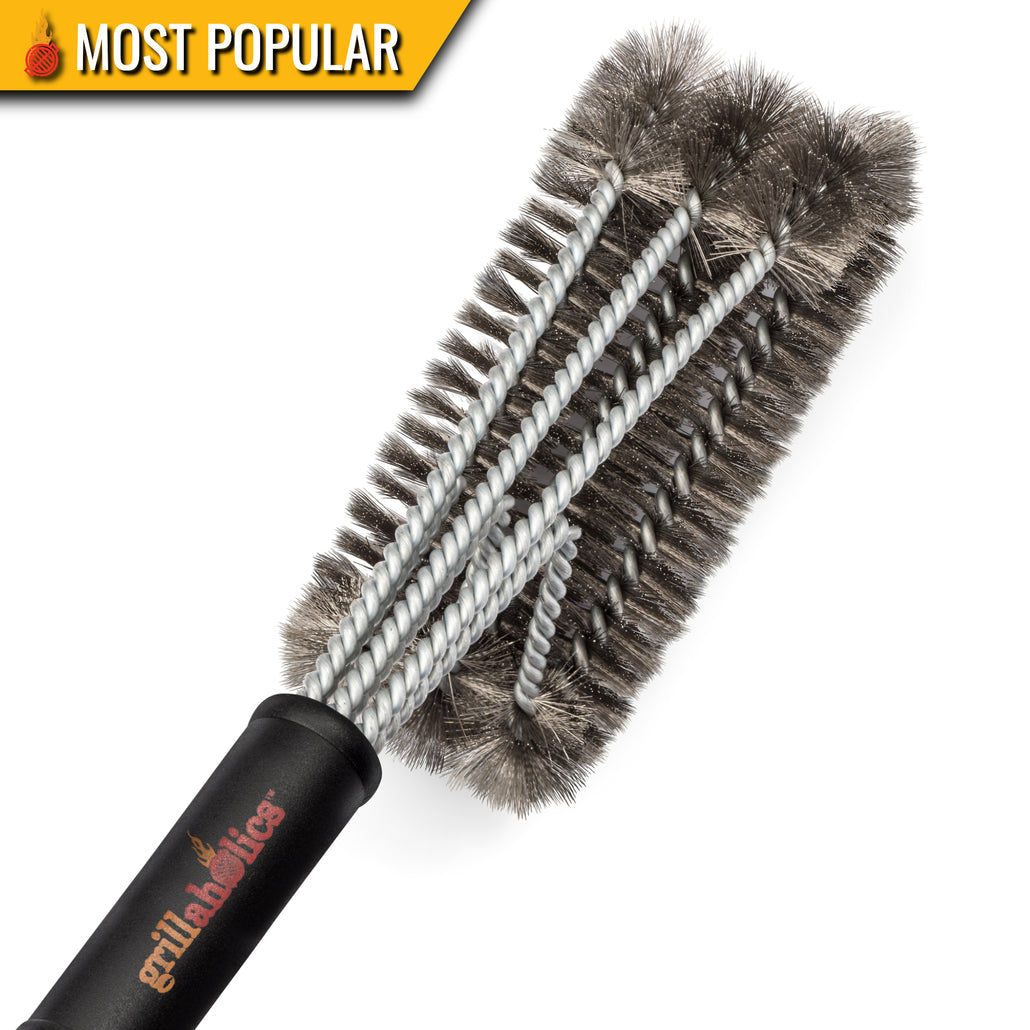What Grill Brush is Right for You?
By its nature, grilling is a messy business. Fat, sugar, and oil all make regular appearances in our day-to-day barbecuing, and they’re all a pain to clean. Cleaning your grill is one of the less-glamorous, and less-enjoyable parts of being a Grillaholic.
That being said, it’s probably one of the most important. If you’re good to your grill, your grill will be good to you. But, grates are generally just too big and bulky to dump into a sink. So, enter the wide world of the grill brush. One of the biggest divides in grilling is what material to buy when it comes to your brush. Steel and brass are two of the most popular choices, so we’re going to be looking at the pros and cons of each.
When to Use a Brass Grill Brush
Traditionally, grill brushes use bristles made of brass. The brass-bristle type of brush is still extremely popular for a couple of reasons. Firstly, most grill manuals state that only brass bristles should be used on their equipment. When you buy a shiny, new grill, following the manual is typically a good idea.
Also, many people see brass bristles as being the ‘safe’ choice. They’re a bit softer than steel brushes, so you don’t have to worry about scratching or damaging your new grill grates. With fragile, porcelain grill grates becoming a popular option, softer-bristled brushes seem like a natural solution.
Unfortunately, because they’re softer, brass brushes don’t offer quite the same robustness as steel bristles do. While brass brushes definitely can get a grill clean, it may take quite a bit more elbow grease. Another consideration is durability. Soft brass brushes will wear out much more quickly than stainless steel. If you’re in the ‘buy it for life’ camp, brass brushes might not be the way to go.
Lastly, brass bristles are going to rust, and there’s no way around that. Properly drying and cleaning a brass brush can delay any rust setting in, but eventually, it’s going to happen. And when the rust comes, the brush will need replacing.
When to Use a Stainless Steel Grill Brush
Stainless steel brushes offer a few advantages over brass. For one, their firmer bristles make them tougher on dirt, grease, and grime. This means you’ll need to put less effort into cleaning your grill (which in turn means more time for actually cooking on the thing). These stiffer, more durable bristles also mean it's going to be a long time before you have to buy another brush. Lastly, stainless steel doesn’t rust, so moisture isn’t going to be a problem.
The only caution to keep in mind is damaging your grill. Stainless steel brushes can be too hard for some grates. Especially if you have porcelain or cast-iron grates, consider looking at a brass option -- in many instances, stainless steel will do more harm than good on those materials.
What About Nylon Grill Brushes?
Nylon is another great choice for a grill brush, specifically if you have porcelain or cast-iron grates. Although not often discussed in the ‘grill brush’ conversation, they’re a handy, convenient solution for many. These soft bristles will effectively and safely clean your equipment, and don’t have the rust issues that come with brass brushes.




